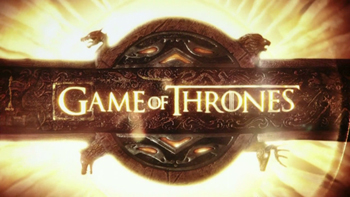Gross: HBO’s piracy problem

HBO’s original series Game of Thrones is one of the most-pirated television series. On-demand streaming sites are more convenient to viewers who cannot base their schedules around television show times, as opposed to networks, which don’t offer the same amount of flexibility.
March 11, 2013
Television has endured numerous changes throughout its history. One of the most recent and perhaps revolutionary occurred with the invention of digital video recorders and then the popularity of online providers such as Hulu or Netflix. With these new and convenient forms, viewers have not been confined to strict show times, ending the era of forming your schedule around your favorite program.
With these changes has come an accompanying sense of entitlement. When viewers can’t watch a program at a time convenient to them, many feel angry or cheated. Additionally, so many shows are now readily available through Netflix or Hulu that the handful of shows that aren’t as easily accessed are frustrating to potential viewers.
It is this aggravating gap in show availability that most often leads to the pirating of television shows. We’ve all been lectured on piracy dozens of times, enough that the threats of disgrace and heavy fines don’t really hit home anymore. Waiting the long months for the DVD or Blu-ray release of a popular show is an unendurable task for devoted fans. Because of this, the convenience of piracy is often a bigger factor than the inexpensiveness.
A prime example of this is HBO’s show “Game of Thrones.” The show approaches its third season, which begins March 31, and its popularity soars with each new episode. An article about TV piracy on Screenrant makes the claim that the show was the No. 1 most-pirated show of 2012. According to a chart in the article, there were more illegal downloads of “Game of Thrones” than there were estimated TV views.
For a network that produces its own shows and does not make money off of advertisements, this extreme level of piracy can be particularly damaging. The Hollywood Reporter estimates that the production cost for the entire series will hit somewhere between $50 million and $60 million. With expenses like that, it seems essential that viewers pay for their privilege.
Inexcusable as piracy may be, fault for this level of theft lies at least indirectly on HBO itself. The shows and movies that it provides are only available to a small group of people: cable and satellite subscribers of HBO. “Game of Thrones” is one of the most popular shows on television, but it can’t be accessed through Netflix, Hulu or any other (legal) show-hosting site.
Why does HBO choose to restrict viewers in this way? Maybe they haughtily consider themselves an exclusive service. Maybe they believe that they will make more money if they force people to subscribe to their expensive network. The latter might have proved true if there weren’t so many illegal conduits for viewership. In any case, HBO is only hurting itself.
Hundreds of fans, completely willing to pay for their beloved show but unwilling to buy a cable or satellite subscription, have cried out for a stand-alone HBO streaming service. Unfortunately, HBO has shied away from this recourse. In summer 2012, desperate fans even launched the takemymoneyhbo.com, starting an avalanche of tweets declaring how much fans would be willing to pay for a stand-alone service. HBO’s definitive “no” rang harshly in the ears of pleading fans.
HBO seems to be taking the wrong approach to fighting piracy. Ignorant to the fact that their fans want to pay them, HBO denounces and threatens the pirates rather than opening up alternative methods of viewing. Being an avid “Game of Thrones” fan myself, if it weren’t for my family’s HBO subscription, I would be among the thousands of fuming fans.
“Game of Thrones” is by no means the only pirated television show out there. Hundreds of producers suffer from piracy. I’ve heard many people rationalize their illegal downloads by declaring that the big shots are still loaded. The argument that, “They are making money, anyway,” shouldn’t justify blatant theft.
However, what many producers and networks need to realize is that not all piracy is committed by selfish, greedy punks who don’t care to support their favorite shows. Even though Internet piracy is never really okay, many people who turn to it do so out of lack of alternative options. If HBO, along with other networks, realized why people pirate, perhaps they would offer different solutions.
In any case, it seems unlikely that HBO will soon change its policies. In the meantime, those of us in need of a “Game of Thrones,” “True Blood,” or “Girls” fix will suffer and grumble. If you fall into this group, consider finding a friend with a subscription to HBO rather than illegally downloading your favorite shows.
——————————————————————————————-
Hailey Gross is a sophomore in English from Cedar Rapids, Iowa.






